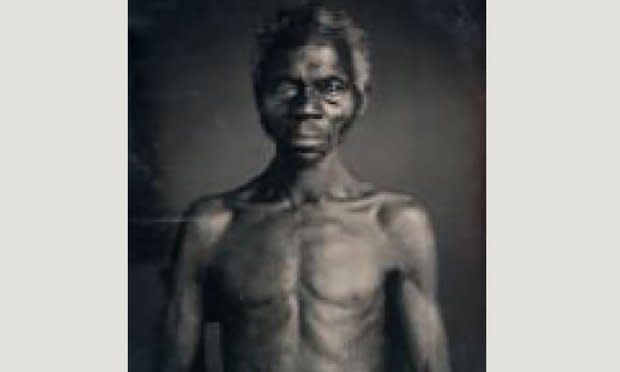Heavy-Hitting Litigators Team to Sue Harvard Over Slave's Photographs

This photo of Renty, an enslaved African man, was taken in South Carolina in 1850 and is the subject of a lawsuit against Harvard University by Tamara Lanier, his direct descendant. Lanier is seeking possession of this photo and one other similar picture. Courtesy photo.
Two prominent attorneys from opposite ends of the East Coast have teamed to represent a descendant of a slave whose photos have become iconic at Harvard University.
Josh Koskoff of Bridgeport, Connecticut-based Koskoff Koskoff & Bieder and Florida-based civil rights attorney Ben Crump are among nine litigators representing Tamara Lanier, the great-great-great-granddaughter of an enslaved African man identified as Renty in photos taken in South Carolina in 1850.
The attorneys met through "Marshall," a movie about the life of former U.S. Supreme Court Justice Thurgood Marshall. Koskoff's father, Michael, who also represents Lanier, wrote the screenplay. Crump had a small role in the movie, along with his clients, whose teenage son, Travyon Martin, was shot on his way from the store by neighborhood watch captain George Zimmerman.
While attending a civil rights conference featuring Crump, their future client, Lanier, approached the attorney about her conflict with Harvard. Crump agreed to take the case, and reached out to Michael Koskoff's firm to work on the case. That led to Crump and the younger Koskoff holding a press conference on the lawsuit in New York City Wednesday.
The attorneys filed suit Wednesday in Massachusetts Superior Court, accusing Harvard of wrongfully profiting from the photographs, which they say the university has refused to turn over to Lanier and her family.
Both men have litigated high-profile cases.
Koskoff has been in the news most recently for his representation of multiple families of victims of the Sandy Hook Elementary School shooting. He had a victory in that case on March 14, when the Connecticut Supreme Court ruled the families' lawsuit against gun maker Remington could move forward. Koskoff also won a $25 million verdict from a Bridgeport jury for an 18-year-old woman whose lower leg was amputated due to poor medical care.
Crump is the lead attorney at Ben Crump Law, which has offices in California, Florida, Georgia, Mississippi, Tennessee and Washington, D.C. He is best known for representing the Martin family, but grabbed headlines this week for a case in South Florida involving alleged police brutality.
Litigator Calls on DOJ to Investigate Alleged Police Violence Against Black Women in South Florida
In that case, Crump called on the Department of Justice to investigate the internal procedures of South Florida police departments following a number of incidents. He sent a letter to the DOJ in light of the March 12 death of Latasha Walton, who died after a Florida Highway Patrol trooper shot her during a traffic stop.
Now the attorneys are turning their attention to the Ivy League school.
According to Koskoff, Harvard's behavior toward the Lanier family had been "arrogant, dismissive and utterly shameful."
At the center of the controversy are nearly 170-year-old photos of Renty and his daughter, Delia, who were both slaves. Renowned Harvard professor Louis Agassiz had commissioned the photos, which, according to the lawsuit, were used to support polygenism, a theory that Africans and African-Americans are inferior to whites.
Agassiz worked for Harvard for 27 years, and the university still praises him to this date, the suit contends, adding that Harvard's website this week described Agassiz as "celebrated" and "charismatic."
Now, Renty's descendants want to end the university's use of their ancestors' images. They say Renty's daughter was told to strip to her waist for the photo shoot, and that the pictures, taken without the consent of the two slaves, belong to the family.
Harvard's "leading scientist commissioned this study by dragging this man and stripping him of his clothing to prove that blacks were inferior," Koskoff said.
Echoing the lawsuit, Koskoff said Harvard has profited handsomely from the images.
"They have licensed images of the photos for $600-$700," Koskoff said. "There is also merchandise in forms of alleged educational material for sale with Renty's image on the cover. Obviously, these images are extremely valuable and of historical importance."
Neither Harvard's media relations department or Robert Iuliano, its general counsel, responded to requests for comment. The university, as of Thursday, had not assigned attorneys to the case.
The suit seeks unspecified monetary damages, and the photos' return to the Lanier family.
Also representing Lanier in her lawsuit are: Sean McElligott and Katherine Mesner-Hage of the Koskoff law firm; Elizabeth Mulvey of Crowe & Mulvey; Scott Carruthers and Talley Kaleko of the Crump law firm; and Mark Marderosian of Cohen & Marderosian.



